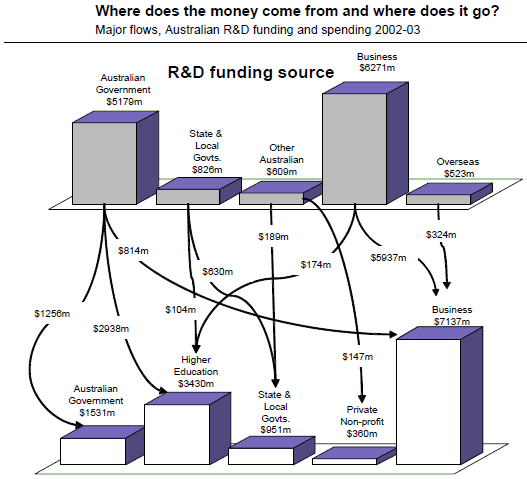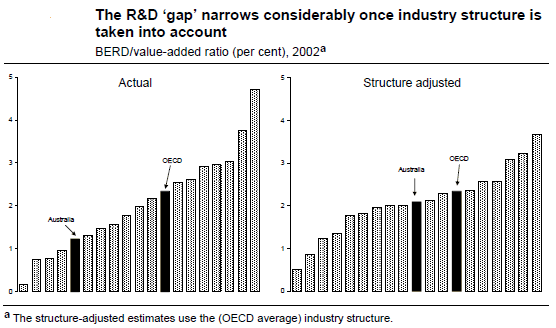|
|
|
|
|
|
|
News & Views item - November 2006 |
![]() A Critical Appraisal of the UK Blair Government's Commitment to Science.
(November 20, 2006)
A Critical Appraisal of the UK Blair Government's Commitment to Science.
(November 20, 2006)
David Sainsbury's decision to step down as the UK Labor government's science minister after eight years in the job engendered immediate and almost universal praise for the man and his furthering of UK science.
The most cogent comment came in Nature's editorial in its November 17 issue.
[David Sainsbury's] commitment to science... combined with [his] quiet yet successfully determined support for science throughout his eight years, underlies the chorus of almost unmitigated praise from leading UK scientists following his resignation last week.
But then the journal went on:
The disappointing aspects of this era mostly happened despite Sainsbury, rather than because of him. The 'spin' in government statistics — whether in budgetary announcements or in statistics of growth in undergraduate numbers — is a part of Blair's legacy for which his probable successor as prime minister, chancellor of the exchequer Gordon Brown, shares responsibility and would do well to discourage. As a government minister, Sainsbury cannot be wholly absolved from responsibility for something he nevertheless tried to resist: the relentless growth of academic bureaucracy, supposedly in aid of accountability.
Sainsbury's strengths have included making the time to engage with scientists and to understand their goals.
Now, the Treasury is focusing on critically analysing the benefits emerging from an unprecedented ten-year programme of annual increases in science funding.
Just what those increases amount to, given the exaggerations of spin... and just what benefits are demanded by the Treasury, are key issues for future scrutiny.
Not until Australia's research community decides to engage the Australian public in explaining its raisons d'ętre together with carrying out a thorough, objective analysis of just what and how the federal and state governments ought to foster research and development will significant progress be made in bringing Australia's support for R&D to a level comparable to the top OECD nations.
Two charts from the Productivity Commission's Draft Research Report on Public Support for Science and Innovation, published earlier this month, are instructive. The first shows from where R&D funding comes and where it goes, while the second shows what you can do with a bit of statistical manipulation.


A sceptical comment from a participant at a workshop concerned with the draft report suggested that with appropriate massaging of the data any value could be obtained to make Australia look less bad, but more to the point the PC was not looking forward to bettering Australian business R&D in trying to make Australian BERD look better than the "actual" evaluation indicated.
At the beginning of 2001 TFW wrote:
So what is the solution?
To regard as valuable - learning, knowledge, and their utilisation. That's it.
It's that simple to state and it'll be damned hard to accomplish. One thing's certain; there'll be no quick fix.
Almost six years down the track, very little has changed for the better.